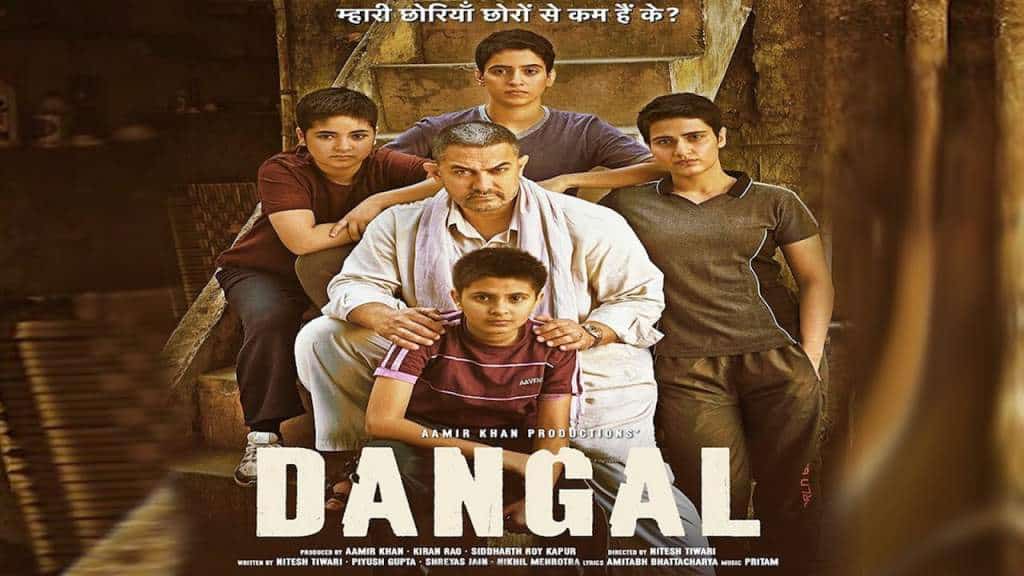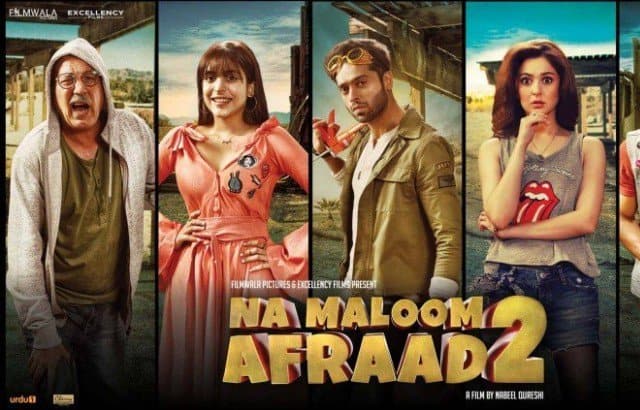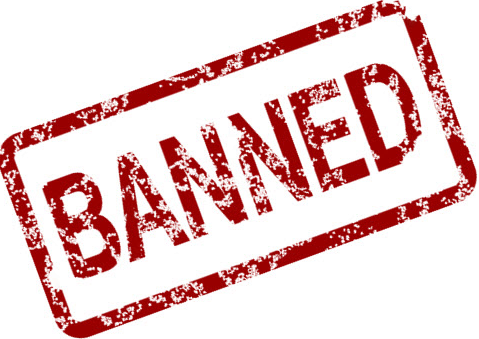The year 2017 is concluding in a weeks time. With respect to cinema it has been a mixed year where very few films were able to succeed. Bollywood films which are the backbone of the cinema business also failed to repeat the success of 2016.
Like every year there were films which were banned or stuck in the censor board. Few films were released after countering the objections of the censor board.
The authority of giving screening certificates to the films (local or foreign) lies with the Central Board of Film Censors (CBFC). CBFC headquarter is in Islamabad and it also had regional sub-offices in Karachi and Lahore. CBFC members are appointed by government its members come from diverse backgrounds like civil servants, civil society, law enforcement institutions, journalists, law makers, artists, writers or film makers.
In 2011, after the 18th amendment of the constitution is passed, the right of film certificate and censor is delegated to the provinces. So each province can form its own censor board, however in absence of any board CBFC will continue their authority over the province. Since 2011 the provinces of Punjab and Sindh have established their censor boards, so at the moment three censor boards are functioning in our country.
Punjab Board of Film Censors (PBFC) has authority over the whole province of Punjab excluding the cantonment areas.
Sindh Board of Film Censor (SBFC) has authority over the whole province of Sindh excluding the cantonment areas
Central Board of Film Censors has authority over all the cantonment areas, Islamabad Capital Territory (ICT), Federal areas of FATA, Gilgit Baltistan and Azad Kashmir. Since the provinces of KPK and Balochistan has not established their censor boards so CBFC also has authority over these provinces, until they setup their own boards.
Constitutionally all three boards are independent, but in practice the PBFC and SBFC follow the guideline of CBFC. If CBFC refuses to issue the screening certificate to a film, normally PBFC and SBFC also follow the same trend. There are few exceptions as well like Urdu film Swaarangi (2015) was allowed screening certificates by SBFC and PBFC, but CBFC refused its screening. In 2013, PBFC refused to issue the screening certificate to a Bollywood film Jolly LLB declaring it an all and all obscene film. But CBFC allowed the screening of the same film. As a result the film was screened in the cantonment areas of all the cities of Punjab, however it was not released in the cinemas outside the cantonment areas in the same city.
Historically CBFC is considered the most strict board out of all the three boards as many times a film cleared from the PBFC, SBFC fails to clear the CBFC criteria. CBFC is often criticized for its inconsistent behavior with respect to films certification.
In order to screen a locally produced film it must get a screening certificate from any of these three film certification boards. For the foreign films an additional step is required. At the first step the distributor writes to the Federal Ministry of Commerce with the intention to import a film. After examining the content of the film the Ministry of Commerce issues a Non Objection Certificate (NOC) to the distributor and the film is imported. Once imported the film must obtain a screening certificate from any of the three functional Film Certification Boards like a local film. The film certification boards can also seek the advise of Federal Ministry of Information for the screening of a film if the board does not reach a decision about the screening of the film. The information ministry has the authority to revert the decision of the censor board at any time. So even if a film is allowed screening by the censor board, the information ministry can still revoke its certificate.
After initial review the censor board can object on the content of the film and asks the producer to cut the objectionable material. In such cases normally the censor board refers the film to full board, where film maker has the right to challenge the objections of the censor board. If film maker refuses to cut or alter the objectionable content, then censor board either refuses to issue the censor certificate or refers the case to the information ministry for the final decision.
The most common reason put forth by the censor board to ban a film is anti-Pakistan or anti-religion content. Historically CBFC has been quite strict on this, especially any foreign film having a reference to Pakistan or the religion Islam mostly comes under the axe. More than 95% films are banned for the very same reason. The second most common reason is the obscene or vulgar content but very few films are banned due to this reason.
This article is a compilation of such films which faced objections from the censor boards or information ministry in the year 2017. Few of these films were ultimately released after the desired cuts or after the appeal from the film makers.
Raees (Banned)
Bollywood’s Raees starring Shahrukh Khan, Nawazuddin Siddiqi and Mahira Khan was due to release on 26th January 2017 on India’s Republic Day. The film was based on the story of a Muslim criminal in the Indian state of Gujarat. It was the first Bollywood film of Pakistani superstar Mahira Khan. In Pakistan its distributor was Eveready Pictures.
There was a self imposed ban placed on the screening of Indian films in October 2016 which later lifted in mid December 2016. Since December 2016, the cinemas started the screening of old Bollywood films already imported, as the import of the new Indian films was still in progress. In the start of January, government provided the NOC to import two Bollywood films Kaabil and Raees. Both to be released on 26th January 2017 where both were supposed to be the new films to be released after October 2016.
Traditionally Bollywood films starring the Khans (Salman, Shahrukh, Amir Khan) had a tremendous success record on Pakistani box office. The highest grossing Bollywood film of the year in Pakistan had always been a Khan starer film. Therefore Raees was termed as the potential winner of the box office and the most anticipated film of the year.
The film was duly imported and presented before the all three censor boards. PBFC and SBFC cleared the film without any major cut, but waited for the verdict of CBFC before issuing the screening certificate. However CBFC had a totally different point of view on the same film which passed the other two boards. Due to the very same reason the film’s release was shifted to next week on 3rd February 2017. Whereas the other film Kaabil was cleared by the censor boards and it became the first new Bollywood film to release in Pakistan after October 2016.
As per the press reports CBFC termed the content of the film as anti-Muslim, as the the main protagonist was a criminal from the Indian Muslim community. The film was referred to full board, however even full board had the same reservations and referred the case to the information ministry. The distributor eventually requested the Information Ministry to clear the film which in the end also favored the CBFC’s stance. Thus CBFC denied the screening certificate to Raees, a decision also followed by the PBFC and SBFC. For this ban, the inconsistent behavior of CBFC was widely discussed and criticized in the press.
So film termed as one of the most anticipated films of the year was not released in Pakistan. Worldwide and in India it proved super hit and Mahira Khan became the first Pakistani female artist to star in a 100crore club Bollywood film.

Dangal (Refused censor certificate)
Bollywood’s Dangal starring Amir Khan was released in December 2016 at a time when the Indian films screening was facing a self imposed ban in Pakistan. The ban was lifted by the end of December 2016 and eventually new Bollywood films were released by the end of January 2017. In Pakistan its distributor was Geo Films.
Dangal proved blockbuster worldwide and once the ban on the Bollywood films was over the distributor decided to release it in Pakistan as well. In February 2017 the film was duly imported after receiving the NOC from the government. The film was supposed to release in early March 2017.
The film was cleared by the PBFC and SBFC but again stuck in CBFC. CBFC suggested few cuts in the film, the major cut was to remove or mute the Indian National Anthem at the climax of the film. The distributor consulted the respective Indian film maker who refused to go ahead with the suggested cuts. Amir Khan the protagonist of the film, publicly issued a statement refusing to cut the Indian National Anthem at the cost of releasing the film in Pakistan.
Thus CBFC and eventually PBFC, SBFC refused to issue the screening certificate to Dangal. After Raees, Dangal was another potential successful film which failed to pass the axe of the censors.
Despite this refusal, Dangal was screened on the television channel Urdu 1 on Eidul Fitr (in June 2017) and it aired the scenes which CBFC had found objectionable. PEMRA (the regulatory body of electronic media) issued show cause notice to the Urdu 1 on this breach of code of conduct.

Naam Shabana (Banned after 1 day of release)
Bollywood’s Naam Shabana a spy thriller was released on 31st March 2017 in Pakistan. The film was duly imported after obtaining the NOC from the government and passed by all the censor boards in Pakistan. To everyone’s surprise the same board revoked the screening permission after one day of screening with the reason “it portrays Pakistan in bad taste”. The decision of the CBFC was ironic as the same board has reviewed and permitted the release of the film.
The whole saga again highlighted the inconsistent attitude on part of CBFC.
Source: https://tribune.com.pk/story/1372212/taapsee-pannu-starrer-naam-shabana-banned-across-pakistan/

Raasta (Released after cuts)
Raasta was an Urdu film due to release on Pakistan Day on 23rd March 2017. Famous media personality Sahir Lodhi appeared as a writer,director, producer and hero in the film. The film also had a tough time with the censors which objected to the supposedly strong language in few dialogues and thus asked to cut the relevant scenes.
Sahir Lodhi being the film maker challenged the suggestion of the censor board, and pleaded his case before the full board. The situation delayed the release of the film by one week.
Eventually the film released with few cuts and proved flop.

Viceroys House/Partition 1947 (Banned)
Viceroys House was a British-Indian film released in UK on 3rd March 2017 and on 18th August 2017 in India. The film was directed/produced by Gurrinder Chadha a British film director of Indian origin. It was based on the events during the partition of the Indian Subcontinent in 1947 at the end of the brutal and oppressive colonial rule by Britain.The last viceroy of the British India was Lord Mountbatten, whose incompetency resulted in worst riots and killings of million of people during the partition of 1947. Lord Mountbatten , was also shown in this historical fiction film along with the other prominent leader of that era like Jawaharlal Nehru, Mohandas Karamchand Gandhi, Muhammad Ali Jinnah.
The film was criticized for showing fake history and not highlighting the British authorities incompetency in dealing with the widespread riots and killings. There were concerns over the accuracy of the events as well the anti Muslim narrative of the film. Fatima Bhutto accused the film’s British-Indian director, Gurinder Chadha, of seeming “to take pleasure in laying the bloodshed and brutality of 1947 at the feet of two particular villains: Muslims and Jinnah”. It was, she wrote, the product of “a deeply colonised imagination … [a] servile pantomime of partition”. (Source: https://www.theguardian.com/film/2017/mar/03/fatima-bhutto-viceroys-house-watched-servile-pantomime-and-wept)

The film was released in India on 18th August 2017, with Hindi dubbing and renamed to Partiion 1947. In Pakistan, the status of the film “Partition 1947” release was not clear. The director Gurrinder Chadha tweeted that the film has been banned in Pakistan though there has been no official statement from the information ministry or any censor board on this. Following the story the English Daily, ET published the following remarks of SBFC, saying that the film has been refused the screening certificate.
Sindh Film Censor Board secretary Abdul Razzaq Khuhawar confirmed the news, citing the misrepresentation of Jinnah as the sole reason. “It’s a historical film and nothing negative is shown against Pakistan. The main reason for banning it was the misrepresentation of Quiad-e-Azam Muhammad Ali Jinnah,” he said.
“We felt his character was not portrayed correctly and it felt strange. Although the character only appears in a few scenes as the film mostly revolves around Lord Mountbatten, the actor didn’t look like Jinnah at all. If you had seen it, you couldn’t tell it was Jinnah. Otherwise, there were no issues with the film.”
The Sindh censors deemed it unsuitable, stating that “the political narrative contradicts the national interest of Pakistan.”
Source: https://tribune.com.pk/story/1487118/partition-1947-banned-pakistan-misrepresenting-jinnah/
Namaloom Afraad2 (Banned for one day)
Namaloom Afraad2 an Urdu film, was released on Eidul Azha on 1st September 2017 after duly passed by all the three censor boards. The film proved successful and entered its fourth week when first the Punjab Government (through the information ministry) and revoked its screening certificate.
PBFC put forth the reason that the Punjab government had received numerous complaints of vulgar scenes and dialogs in the film and thus the film was denied screening. Nabeel Qureshi and Fizza Ali Meerza the director and producer of the film respectively announced their displeasure through social media and to challenge the decision in the court. The information ministry of the Punjab government after revoking the screening license asked the PBFC to again review the film while considering the complaints and concerns it had received. To everyone’s surprise the PBFC reviewed the film and again allowed its screening without any cut.
So the screening of the film continued in Punjab after a one day ban.

Verna (Stuck in the censors but later allowed screening)
Verna an Urdu film was released on the 17th November 2017. Being directed by Shoaib Mansoor, it was a highly anticipated film. As per press reports the film was cleared by PBFC and SBFC, but they waited the verdict of CBFC before issuing the formal permission. A film of revenge thriller genre, it covered multiple social evils prevailing in our society.
But CBFC raised multiple concerns on many dialogs, scenes and situation of the film. The film was referred to the full board for further review but again failed to get the permission without the intended cuts. The director/producer Shoaib Mansoor challenged the cuts suggested by the CBFC but failed to convince the board. However the board and film maker failed to reach on any agreement. As a result the planned premieres of the film were also cancelled. Thus the decision now lies with the Information Ministry.
The whole fiasco was also widely discussed on the social media. Few termed it all as a staged act to gain publicity for the film. After much debates in the media, the information ministry intervened and the film was cleared for screening by the CBFC without any cuts.
This act again raised questions on the eligibility of CBFC members. First CBFC was not adamant to release the film without cuts, and in the end cleared it without any cuts. Also once again a film cleared by PBFC and SBFC was stuck in CBFC.

Tiger Zinda Hai (Refused NOC by the information ministry)
Tiger Zinda Hai was a Bollywood film due to release on 22nd December 2017, starring Salman Khan in the lead role. Bollywood films in general are very popular in Pakistan, specifically the Khan starrer movies. The Khan starer Bollywood films always prove successful in Pakistan.
As per the process, the distributor of the film applied for the NOC to import the film to the information ministry. The information ministry seek the advice of the CBFC which after review the available trailer of the film advised against the film. CBFC termed the film as anti-Pakistan and anti-Muslim. Following CBFC’s advice the information ministry refused to issue the NOC and thus the film was not imported in Pakistan.

So it completes the list of the films of 2017 which were banned or had issues with the censor boards. Seeing the history of the troubled films with censors, it is evident that most of the films pass SBFC and PBFC, but struggle at the censor table of CBFC.
Out of the all three boards, CBFC has been the most inconsistent with regards to its censor policy. Especially when a film is denied screening after it had received the censor certificate. Naam Shabana and Verna are prime example of such behavior.!
Do share your thoughts with respect to the censor criteria of our censor boards. Which films should qualify to be banned as per your opinion
Thanks for your time and reading.
Rashid Nazir Ali
